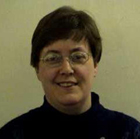Database Search Tips
From Nuliscreative
| Line 1: | Line 1: | ||
| - | <div align="center" style="color:#FFF; background:#006; padding:10px; font-size:150%; font-weight:bold;"> | + | <div align="center" style="color:#FFF; background:#006; padding:10px; font-size:150%; font-weight:bold;">Napier Library's Creative Industries Wiki</div> |
[[Image:00002117.jpg|frame| Marian Kirton - Creative Industries Librarian]] | [[Image:00002117.jpg|frame| Marian Kirton - Creative Industries Librarian]] | ||
Revision as of 10:42, 1 February 2008
Subject Areas |
Database Search TipsIn most databases, you will get some results if you just type keywords in a search box. But is that a good search? That depends on how the database has been programmed to search, and they are all different. If you don't think carefully about what you are asking it, you may get 20% of what is there, instead of 100%. Multiple words If you type in more than one word, what will it do? e.g media ethics
If the results you get are not what you wanted, you will need to find out how to do the right kind of search, e.g.
Less = More It may not be a good idea to type in too many words. More words may just confuse your search.
Boolean logic - many databases use this AND = both terms OR = either 1st or 2nd term NOT = finds 1st term except if 2nd term present See the diagrams from Internet Tutorials on Boolean Searching on the Internet for an illustration of this. Other ideas
Truncation comput* (sometimes $ instead of *) Wildcard organi?ation Proximity satellite w/3 wireless
Make the computer do the work for you
|

